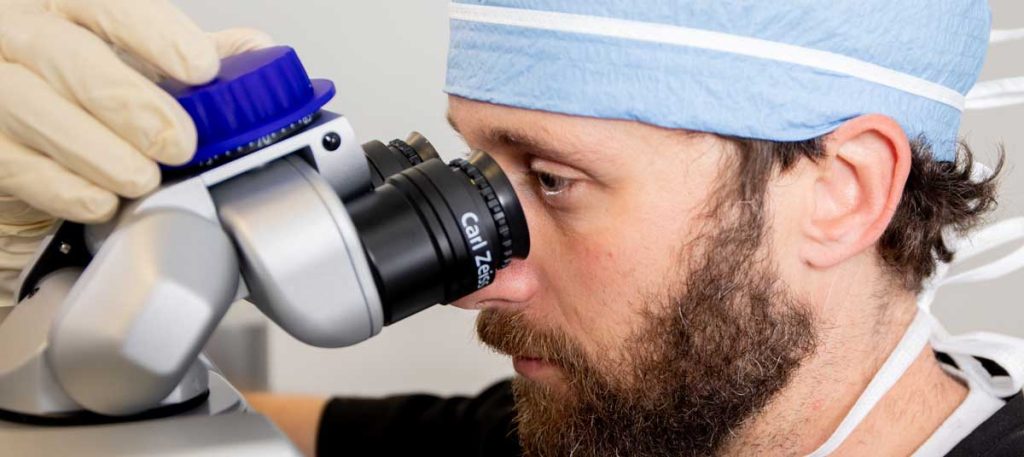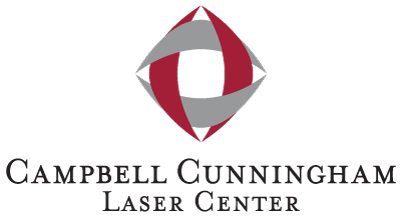Photorefractive Keratectomy (PRK)

For people who might not be candidates for LASIK®, there is another revolutionary laser procedure available that may offer equally great visual improvement. Photorefractive keratectomy (more commonly referred to as PRK) may be the better option for people with dry eyes or thin corneas, as LASIK is generally not recommended for these conditions.
What is PRK?
PRK is a laser refractive surgery to correct myopia (nearsightedness), hyperopia (farsightedness) and astigmatism. Like LASIK and other laser procedures, PRK works by reshaping the cornea using an excimer laser, allowing light entering the eye to be more properly focused on the retina for clearer vision. PRK is designed to help reduce your dependency on eyeglasses or contact lenses and may even allow you to do without them completely in some cases.
What is the difference between LASIK and PRK?
While PRK is similar to LASIK in that both procedures utilize an excimer laser to sculpt the stromal layer of the cornea, the main difference is that no flap is created in PRK as it is with LASIK. Instead, the outer layer of the cornea is treated, changing the shape of the cornea to correct nearsightedness, farsightedness, or astigmatism. Both procedures can provide amazing vision benefits, but some people may be better candidates for one or the other depending on their individual situation.
Am I a candidate for PRK?
If you have dry eyes or thin corneas and wish to have refractive surgery, PRK may be a good option for you. Eye care professionals say these conditions can cause you to not be a candidate for LASIK. PRK may also be a better option than LASIK if you have a very active lifestyle because the procedure does not involve cutting a flap in your cornea as is done with LASIK.
Those who may not be good candidates for PRK include people with the following:
- A changing or unstable refractive error
- Corneal scarring
- Cornea disease
- Advanced Glaucoma
- Uncontrolled diabetes
- A history of certain eye infections

Your eye care professionals at Campbell Cunningham Laser Center will conduct a thorough eye examination and discuss your options in detail to help you decide on the best treatment option to improve your vision and meet your personal goals.
How is PRK performed?
PRK is generally an outpatient procedure that typically takes about 15 minutes from start to finish. Your eye will be numbed with drops prior to the procedure, and your Ophthalmologist will place an eyelid speculum on your eye to halt any blinking. Then they will carefully reshape the outer layer of the cornea (the epithelium) using a laser. You will then be asked to stare at a target light to steady your eyes while the Ophthalmologist reshapes your cornea using a laser that has been programmed with specific measurements for your eye. You’ll likely feel mild pressure during the procedure, but this is generally tolerated well by most patients.
What is the recovery from PRK like?
Immediately following the surgery, your Ophthalmologist will place a special contact lens over your eye that acts as a bandage to help the cornea heal. You will need to have someone drive you home after your procedure. Your surgeon may suggest you take a few days off from work and avoid any strenuous activity for up to a week. You may experience some eye pain for two to three days after surgery, but over-the-counter pain medication can help alleviate this. Your doctor will discuss with you if eye drop pain relievers or other prescription medications may be needed. You’ll need to wear sunglasses when outside for a time after surgery to prevent any sun exposure. By comparison, recovery from PRK can take a little longer than with LASIK.
What results can I expect from PRK surgery?
Your vision will likely be blurry immediately after PRK is performed but should gradually improve over the next three to five days as you heal. For some patients, it may take up to a month or longer before optimal results are achieved. Approximately 90% of PRK patients experience 20/40 vision or better without glasses or contacts. It’s important to note that PRK does not correct presbyopia, which is the natural age-related loss of near vision. If that is your concern, your doctor will discuss other options with you at your appointment.
What’s my next step to PRK in Knoxville and East Tennessee?
The eye care professionals at Campbell Cunningham Laser Center are standing by ready to guide you on your journey seeing life more clearly. Just give us a call at (865) 588-EYES or click here to schedule your free consultation today.

INFORMATION SERVICES
For information on LASIK
or to schedule a Free Consultation:
(865) 588-3937
Office Hours: 8:00AM to 5:00PM
Monday Through Friday
Email: infolasik@ccteyes.com
Online Candidacy Test:
Click Here!

